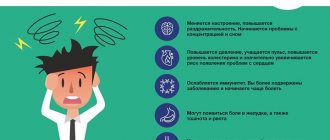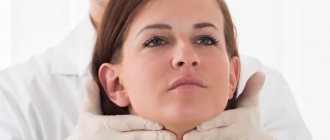When people talk about depression in everyday life, the word can mean many problems. The word “depression” can refer to both an emotional state and a mental health disorder. Depression can be called a fairly quickly passing bad feeling, i.e. disappointment, fatigue, despondency and feelings of sadness that occur in normal life. Typically, these feelings help people change and develop and do not require special treatment to overcome them.
Depression is sometimes defined as a depressed mood that can last from a few days to several months, but does not cause life-threatening symptoms. Passing bad mood and depression caused, for example, by disappointment are not mental disorders; experiencing them does not mean illness and they do not require medical treatment.
The difference between grief and depression is that with grief there is usually an object and a cause, such as the loss of a loved one or a job. The grieving person usually experiences feelings and memories associated with the loss. In the case of depression, it is quite rare to single out one specific cause.
Depression is a mental health disorder characterized by prolonged low mood and other symptoms affecting thoughts, feelings, behavior and the entire body. Once diagnosed, depression can be treated effectively.
This is a disease that needs to be treated
This is the first thing we want to convey to the reader today. According to modern research, it can be placed on the same shelf as cardiovascular diseases, and it does not seem to occur more often. These statistics are not reassuring; a fifth of the world's inhabitants suffer from depression. The reason for this is a frantic work rhythm and an abundance of stress, lack of free time and serious stress, mental and physical. You can argue with this fact by arguing that peasants used to work much more than modern office workers. Perhaps, but they had the opportunity to breathe fresh air, admire the forest and river, eat natural products and spend the evening not at the computer, but with the children.
So, we are talking about an illness that reduces performance and brings suffering to both the patient and his loved ones. However, many people receive help only in the most severe cases. Health services are extremely concerned about this situation and are making efforts to raise public awareness.
In particular, everyone should know the first signs of depression. This is apathy that does not depend on circumstances, indifference to everything that happens and a weakening of motor activity. If there are no other symptoms (malaise, pain) that can be used to diagnose another disease, and the listed signs have been observed for more than two weeks without a tendency to decrease, then you can’t wait any longer.
Depression must be treated and must be treated by an experienced professional
Main symptoms
While doctors are still arguing about the causes, the manifestations are very familiar to every practicing doctor. These are sadness, irritability and withdrawal. Next, a feeling of pressure in the chest develops and often a decrease in potency. Now patients focus their attention on pain.
How does depression manifest itself in the following stages? Signs and symptoms develop progressively. In addition to the above, speech slows down and the voice becomes colorless. Communication with others is reduced to a minimum, concentration of attention is reduced so much that a person is simply not able to carry out work and educational activities. Appetite most often decreases, and in women the menstrual cycle is disrupted.
Psychotherapeutic treatment
How to cope with depression? Without the help of a psychotherapist, you cannot get rid of the disease; drugs can only normalize the patient’s condition, but are not able to help him cope with the problems that caused the depressive state.
A qualified psychotherapist helps the patient understand his problems, see the real picture of his surroundings and learn to cope with the situation or change his attitude towards it.
Several types of psychotherapy are used to treat depression:
- Cognitive-behavioral - the basis of human behavior, including that which led him to depression, is made up of thoughts and ideas about the environment. The psychotherapist helps the patient understand what thoughts caused the illness and change his attitude towards what is happening.
- Family – depression most often occurs when there are present or past problems with parents, life partner, children and other loved ones. Solving these problems helps the patient get rid of instilled incorrect judgments or complexes and often completely relieves psychological pressure.
- Hidden modeling method - when using this technique, the patient is asked to imagine the most frightening or difficult situations that may arise when changing their behavior and to “play out” their behavior in response to these situations.
- Rational-emotive – often the cause of depression is the discrepancy between real life and the patient’s needs and expectations. The therapist helps the patient take a more realistic view of life and get rid of high expectations, which reduces the level of stress.
- Psychodynamic is another popular technique where the patient becomes aware of his hidden, subconscious desires and motives that are in conflict with his conscious beliefs. In such a situation, the doctor helps to understand the cause of the discomfort and find ways to eliminate it.
A depressive state is not just a bad mood or apathy, it is a serious mental disorder that requires complex treatment and care from those around the patient.
Author of the article: psychiatrist Shaimerdenova Dana Serikovna
What signs of depression are considered nonspecific?
All the symptoms listed above are quite arbitrary. Every single one may be present, or vice versa, only a few. There are some features that are also important to know about. If the disorder in question is mild, then a greater need for food may appear.
There is one more sign that you need to pay attention to. If a person has a seriously overestimated critical assessment of his capabilities and abilities, then this becomes the reason for constant dissatisfaction with himself. Speaking about the first symptoms of depression, this is the one you need to pay attention to first. Sooner or later, the constant pursuit of perfection will lead to frustration. In approximately 15% of cases, patients develop delirium. He hears voices that demand that he atone for his guilt with blood, that is, commit suicide.
Constant dissatisfaction with yourself and your life - special attention should be paid to this sign of depression
Reasons for development
This is one of the most interesting and important questions. Only knowing this can you take measures to prevent the development of the disease. However, when considering the signs of depression in a person, one cannot help but note the fact that it is not always possible to predict its development.
- The reasons that lead to the development of diseases include various dramatic events that are not planned and usually cause a shock reaction. This could be the loss of a loved one, status, or job. That is, the disease can develop as a reaction to an external situation.
- However, that's not all. Considering what depression means, we see that hundreds of reasons, combined in a wide variety of combinations, can lead to its development. The second large block is physiological or psychosocial factors. Let's decipher what is included here. These are a high pace of life and competition, an increased level of stress, uncertainty about the future, social instability, and difficult economic conditions. As you can see, the block is very large and extremely relevant for modern society. It is this that cultivates and imposes on a person values that doom him to constant dissatisfaction with himself. If you look a little beyond the everyday bustle, you will easily see the cult of perfection, well-being and strength. It turns out that everyone should be an ideal child, spouse, parent, have a brilliant career, go to the gym, and at the same time be cheerful and cheerful. And since we are all just people, many cease to withstand the constant race for ideals. However, people have a hard time experiencing their inadequacy; they begin to hide personal problems and failures from society, hiding them behind masks.
- Physiologists note that the development of the disease may also be caused by a lack of biogenic amines. These are serotonin, norepinephrine and dopamine. A person can try to compensate for these hormones of joy through sweets and tasty food, as well as alcohol and drugs.
- Depression can be triggered by lack of sun and darkened rooms. It is called seasonal, and most often it appears in autumn and winter.
- Finally, the development of the disease can be provoked by somatics. These are traumatic brain injuries and cerebral atherosclerosis.
The loss of a loved one and other dramatic events can cause depression
Tension, overexertion, nervous exhaustion
Continuing to talk about the reasons, I would like to dwell on a person’s lifestyle. High loads and demands that a person places on himself are a version of a squirrel in a wheel. At the same time, it rotates faster and faster, and there is less and less strength to keep up. Prolonged stress of a psychological and mental nature leads to the fact that a person “breaks down”. As a result, chronic fatigue occurs, loss of performance, and somatic and autonomic disorders develop.
Worth seeing: Moderate depression
The signs of depression and nervous exhaustion are very similar. The main one is endless fatigue. A person constantly wants to sleep, but in bed his thoughts do not allow him to fall asleep for a long time. The best option would be to stop raping yourself and go on vacation, or even go to the hospital. Psychoneurological dispensaries can prescribe a course of treatment, including mild tranquilizers, as well as drugs that intensively restore the nervous system. Rest, medication and good nutrition will give excellent results.
Drug treatment
Several groups of drugs are used to treat depression.
Antidepressants
Antidepressants are the most effective group of drugs in treating depression. They increase the levels of serotonin and norepinephrine in the brain, preventing their destruction or reuptake at synapses. As a result of an increase in the level of “pleasure hormones,” the patient’s condition improves, and the clinical manifestations of depression disappear.
Unfortunately, most antidepressants have a systemic effect on the entire body and cause many side effects; moreover, the results of using the tablets appear only after 2-3 weeks from the start of treatment. Therefore, antidepressants are usually combined with other drugs.
The most popular antidepressants are considered to be 1st generation antidepressants (amitriptyline, imipramine, iproniazid, nialamide, selegin, metralindole, moclobemide), 2nd and 3rd generation - fluoxetine, sertraline, Cymbalta, Zyban, Lerivon, Serzone.
Normotimics
Mood stabilizers - drugs in this group stabilize the patient’s mood; the mechanism of action of mood stabilizers is a decrease in the brain’s ability to excite and an increase in its sensitivity to serotonin and norepinephrine. To treat depression, lithium salts are used, which have a pronounced sedative effect - lithium carbonate and anticonvulsants, anticonvulsants that help reduce brain excitation and relieve attacks of irritation, aggression, anxiety - carbamazepine, valproic acid, lamotrigine.
Anxiolytics
Anxiolytics or tranquilizers - reduce feelings of fear, anxiety, and emotional stress. Just like mood stabilizers, they slow down the brain’s reaction to stimuli, but their use should only be carried out under the strict supervision of a doctor, since drugs in this group are addictive and depress the central nervous system. Phenazepam, Grandaxin, lorazepam, alprozolam are used for treatment.
Neuroleptics
Neuroleptics or antipsychotics are used only for psychotic depression and severe forms of the disease, accompanied by hallucinations, delusions or aggression. The drugs reduce the speed of transmission of nerve impulses in the cerebral cortex, due to which the functioning of the nervous system is stabilized and the patient’s condition is normalized.
The drugs are considered very toxic and cause many side effects: aminazine, tizercin, chlorprothixene, sonapax, neuleptil, haloperidol, triftazine, droperidol, mazeptil, rispolept, ziprasidone.
Self-diagnosis
How to recognize signs of depression and nervous exhaustion in advance? The test can be carried out very easily; you don’t even need a special scale. If you notice sleep disturbances and constant, general fatigue, then your suspicions are most likely not unfounded. Nervous exhaustion becomes the last step before the development of depression, so you will continue to notice all the symptoms that have already been mentioned above. If you want to use professional diagnostic methods, we recommend the A. T. Beck test, or the general depressive rating scale.
The A. Beck Depression Questionnaire helps to promptly recognize signs of depression and nervous exhaustion
Development of the disease
Now let's talk about how depression progresses. We described the signs and symptoms above, but they do not appear all at once. Typically, three stages of development can be observed, which may vary in duration. Considering that it is not customary for us to consult a doctor regarding depressed mood, the course of each stage can be very protracted.
- Dysthymia - a person is in a bad mood and experiences a loss of energy. If you observe similar changes in a loved one, and the condition persists for more than two weeks without change, it makes sense to consult a doctor.
- A depressive episode can last a long time, up to several months. Here one can already note a loss of meaning in life and interest in everything that is happening, and suicide attempts most often occur.
- Depressive disorder is severe depression that occurs with a certain periodicity or cyclicity.
Good relationships with parents and friends help overcome teenage depression
Depression, at least its diagnosis, is more common among girls than among boys. Social support is extremely important for a depressed teen or young adult. Good relationships with friends and parents promote recovery. It has been found that the majority of young people suffering from depression also have some other problem at the same time. The most common are substance use, attention and behavioral disorders, as well as eating and anxiety disorders. There are effective treatments for all of these problems.
Changes in health and life situations that occur in old age can also affect mental health. Increasing need for help and dependence on other people, as well as sadness and thoughts about the end of life require mental strength. Senile depression is often associated with the loss of loved ones, as well as the deterioration of one's own physical health. In addition, the mental health of many older people is burdened by loneliness.
Clinical manifestations
Do not forget that only a qualified psychotherapist or psychiatrist can make a diagnosis.
One can only assume on one’s own that depression is developing if a person experiences a number of specific clinical signs for two weeks or more:
- Bad mood, melancholy and despair, which may not have an obvious reason.
- Loss of interest in ordinary activities. It’s as if a person can no longer enjoy familiar things, everything is rather annoying.
- Anxiety and internal tension often arise.
- Signs of depression include a decrease in self-esteem and a sense of self-confidence; often a person begins to see the future as gloomy and devoid of color.
- However, that's not all. The more severe the disease, the more difficult it becomes to focus on everyday activities, make decisions, and remember new information. The result is constant mistakes at work, dissatisfaction with colleagues and management, which further affects self-esteem.
- In my free time I just want to lie down, I have no desire to communicate with anyone or meet with friends.
- Eating behavior changes. This could be a sharp decrease in appetite and weight, or, conversely, uncontrolled overeating.
- Interest in sex decreases or disappears altogether.
Depressed people experience decreased interest in sex
Psychogenic symptoms
Psychogenic manifestations of depressive states can be in the form of hysteria, hypochondriasis or anxiety. A combination of these clinical signs is also possible. The hysterical type of depression is characterized by increased mental excitability, hysterical attacks, and suicide attempts. The latter, as a rule, do not happen seriously, but are intended to intimidate family and friends (suicide blackmail). The anxious form of depression is manifested by the patient’s depression, increased level of anxiety, and fear. The hypochondriacal form of the disease is characterized by a negative perception of the surrounding reality.
Body and psyche are two inseparable wholes
Indeed, our body is inseparable, and, despite the fact that we theoretically separate these two entities, they function in a single duet. It is not for nothing that body-oriented therapy treats mental problems through working with the body. In the same way, you can do the opposite, by changing your attitude and thoughts, to solve problems such as muscle tension and blocks.
Worth seeing: Endogenous depression
The physiological symptoms of depression are few known, although they exist.
- The very first is migraine. If you suffer from unbearable pain day after day, which is practically not solved through the use of medications, and doctors cannot find the cause, then perhaps the disorder in question is the root of the trouble. Evaluate how your life has been going lately, perhaps you will find answers to your questions there. Severe headaches with depression are typical for a huge number of people, but most of them continue to take all kinds of painkillers for years and look for new diseases of the central nervous system, blood vessels and heart.
- Stomach problems are also a classic symptom. You've probably heard that all gastrointestinal problems come from nerves. This is 100% true. Therefore, if day after day you are bothered by pain, diarrhea or constipation, bloating or irritable bowel syndrome, it may well be depression. Physical symptoms do not confirm any real disease during examinations (that is, for a gastroenterologist the person is completely healthy), and also do not go away while taking various medications.
- Chest pain is a rather alarming symptom that cannot be ignored. Moreover, in almost 30% of cases, doctors do not detect any pathologies of the cardiovascular system and refer them to a neurologist who can diagnose depression.
- Back pain – This symptom is common in people with major or clinical depression.
- Fatigue and lack of strength. Already in the morning it is difficult for a person to get up and get to work. Even after solving simple problems, he feels completely exhausted.
Consequences of a major depressive episode
A patient with severe depression is unable to lead a normal life, work, get around himself, take care of himself or someone else. As they say, it exists, but does not live.
This disease places an unbearable burden not only on the person himself, but also on his family and society as a whole. This is why this condition needs treatment. Waiting for a person to come out of severe depression on their own is extremely imprudent. So you can wait for the dangerous consequences of severe depression - a suicide attempt.
Suicide: when is it possible?
As a rule, patients with severe depression are lethargic and lethargic. Despite having suicidal thoughts, they do not have the strength to act on these thoughts.
There are 2 dangerous periods when the chances of committing suicide attempts are highest: the beginning of depression and the moment of recovery from it.
At the initial stages of a depressive episode, the mood is already painful, the patient may be visited by various bad thoughts, and motor retardation is not yet very pronounced. During such periods, it is necessary to carefully monitor the person so that he does not do something irreparable.
A similar situation occurs a couple of weeks after the start of treatment. The first symptoms that begin to improve with treatment for severe depression are movement disorders. Negative thoughts, unreasonable feelings of guilt, and a pessimistic vision of the future disappear a little later. During a slight improvement, patients can put into practice everything that they had time to think at the peak of depression. So during this period, maximum control is also necessary not only over the patient’s actions, but also over one’s words, so as not to say anything unnecessary or provoke the person to do something.
Support from loved ones and their care is necessary for depression of any severity, so I recommend reading the article ““ to know how to support such a person, what can be said in his presence and what should not be said.
Gradations of disease severity
As you can see, the disease under study is quite multifaceted and many-sided. In addition to all of the above, there are different degrees of depression.
In this case, psychological symptoms are of primary importance. But the disturbance of physiological functions can be the same with different severity of the disease. However, let's look at them in order.
- Mild degree. Many people think that this is synonymous with something frivolous that can be ignored. Just think, I’m in a bad mood, now everyone has problems. However, people with mild depression, when exposed to the same living conditions as others, experience much more severe stress. Any trouble brings them into shock and panic. Even on days when nothing bad happens, a person expects that something is about to happen. In addition, this condition is characterized by depression of mood, inhibition of mental processes, weakening of positive emotions and loss of cheerfulness, increased fatigue, decreased self-esteem and the emergence of ideas of guilt, as well as sleep and appetite disturbances. A mild degree is characterized by the presence of one or two of the listed signs.
- Second on our list is moderate depression. The symptoms are the same, but one person may experience 3-4 of the above at once.
- Severe degree. Usually such a person is visible to the naked eye. He is characterized by severe anxiety or psychomotor retardation. There is a loss of self-esteem, feelings of worthlessness and guilt. It should be noted that moderate and severe depression can be very similar to each other, but here the manifestation of symptoms will be even more pronounced. In this case, the likelihood of committing suicide increases, delusions and hallucinations are possible.
Severe depression can lead a person to suicidal tendencies
Atypical affective symptoms
It is possible to talk about the atypicality of the symptomatic manifestations of depression only conditionally, since their occurrence occurs in more than 40% of cases of the disease. Thus, depression can be accompanied by somatic symptoms (depression under the guise of therapeutic diseases), signs of asthenia, and mixed conditions. Somatic manifestations of depression can be expressed in the following form:
- psychopathic disorders - phobias, obsessive states, neurasthenia, which can sometimes be very difficult to overcome;
- disturbances of habitual biological rhythms, sleep disturbances;
- autonomic and endocrine disorders - VSD, neurodermatitis, impotence, anorexia;
- pain of various types - cardialgia, abdominalgia, cephalgia;
- psychocharacterological disorders - tearfulness, irritability, antisocial behavior.
A special clinical form is asthenic depression, accompanied by excessive fatigue, hypersensitivity to sensory stimuli, loud sounds and bright light. The patient gets tired extremely quickly even when performing self-care processes (taking water procedures, preparing food). It is possible to cope with this pathology only if differential diagnosis with true asthenia is carried out correctly.












